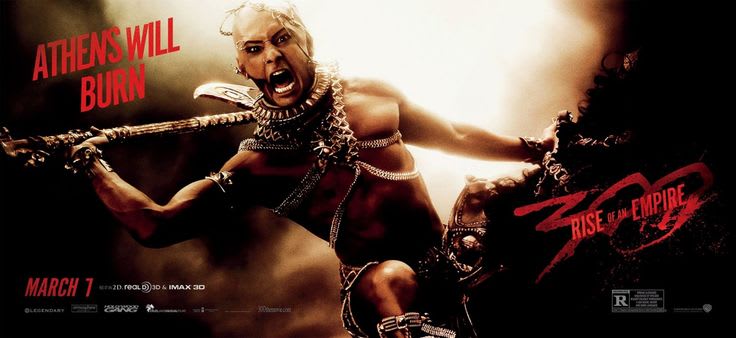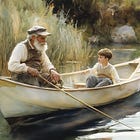Spiritual Puberty
In this story, we discuss sex, gender roles, and gender equality in the Bible.
There are lots of reasons to believe a supernatural intelligence, way smarter than us, influenced the creation and organization of the Bible. One reason is the Cryptographic Bible Key, which we have discussed all throughout this chapter. Forty separate authors, separated by 1500 years of time, all use the same number pattern when telling their stories. That is impossible compared to chance, so it seems like the supernatural intelligence signed its work.
Here’s another incredible reason: the Bible isn’t written in the chronological age of the universe, the Bible is written in the spiritual age of the reader.
It’s much easier to see what I mean when the books of the Bible are in their original order, before the catholic Saint Jerome reshuffled them for his Latin Vulgate translation in 382 AD. Unfortunately, all English translations are based on the Latin Vulgate, so modern Christians have lost some really important context that is much more apparent to Hebrew readers. So here’s a brief history lesson on how the Bible became the Bible to help us understand.
The 39 books of the Old Testament come from the Hebrew Tanakh, which contains 22 scrolls organized into 3 main sections:
The word Tanakh is actually an acronym using the first letter from each section: Ta-Na-Kh.
There has always been some debate among Jewish sects about which books in the Tanakh were inspired by God. The Pharisees of Jesus’s day believed all of the books in the Tanakh were holy, whereas the Sadducees only believed the Torah was holy. Jesus somewhat adds to this confusion in the Sermon on the Mount by only mentioning two of the three sections.
Matthew 5: 17 Don’t assume that I came to destroy the Law or the Prophets. I did not come to destroy but to fulfill. For I assure you: Until heaven and earth pass away, not the smallest letter or one stroke of a letter will pass from the law until all things are accomplished.
Jesus doesn’t mention The Writings in this verse for whatever reason, which seems like a glaring omission considering everything in the Bible is so intentional: down to “the smallest letter or one stroke of a letter”. When Jesus refers to the Tanakh in Luke 24, he mentions The Law and The Prophets again, but this time he adds The Psalms instead of The Writings.
Luke 24: 44 Then He told them, “These are My words that I spoke to you while I was still with you—that everything written about Me in the Law of Moses, the Prophets, and the Psalms must be fulfilled.” 45 Then He opened their minds to understand the Scriptures. 46 He also said to them, “This is what is written: The Messiah would suffer and rise from the dead the third day, 47 and repentance for forgiveness of sins would be proclaimed in His name to all the nations, beginning at Jerusalem. 48 You are witnesses of these things.
To be fair, Psalms is the first book in The Writings. Jesus clearly believes the entire Tanakh is holy because he quotes all three sections.
The Law:
Genesis — Matthew 19:4-5, Mark 10:6-8
Exodus — Matthew 5:27, 5:38, 15:4, 22:32, Mark 7:10, Luke 20:37
Leviticus — Matthew 5:33, 5:38, 5:43, 15:4, 22:39, Mark 7:10, 12:31
Numbers — Matthew 5:33, 5:38
Deuteronomy — Matthew 4:4, 4:7, 4:10, 5:27, 5:31, 5:33, 15:4, 18:16, 22:37, Mark 7:10, 12:29-30, Luke 4:4, 4:8, 4:12
The Prophets:
Joshua — Mark 12:29-30
Isaiah — Mathew 13:14-15, 15:8-9, 21:13, Mark 4:12, 7:6-7, 9:44-48, 11:17, Luke 4:18-19, 8:10, 19:46, 22:37
Jeremiah — Matthew 21:13, Mark 8:18, 11:17, Luke 19:46
Ezekiel — Mark 8:18
Minor Prophets — Matthew 9:13, 10:35-36, 11:10, 26:31, Mark 14:27, Luke 7:27, 12:53, 23:30
The Writings:
Psalms — Matthew 7:23, 21:16, 21:42, 22:44, 23:39, 26:64, 27:46, Mark 12:36, 14:62, 15:34, Luke 20:17, 20:42-43
Daniel — Matthew 23:39, 26:64, Mark 13:14, 14:62
Today, the only Bibles that present the books of the Old Testament in their original order are written in Hebrew. When read in that order, it’s easier to see the age of the target audience steadily increases with each scroll (book):
The Law (Torah) — contains the first five books of Moses.
Genesis
Exodus
Leviticus
Numbers
Deuteronomy
These stories are written for a very young audience, which is why little kids remember the stories so easily. Most of us learned about the Garden of Eden, Noah’s Flood, and the Prince of Egypt before we were ten years old. The vocabulary is simple, the narratives are simple, and the lessons are simple. These stories teach us about our birth and selfish nature. They also provide the Ten Commandments and a bunch of other rules to become better people, sort of like our parents teaching us proper manners when we were young.
The Prophets (Nevi’im) — contains six scrolls:
Joshua & Judges
Samuel & Kings (Books of the Kingdom)
Isaiah
Jeremiah
Ezekiel
Minor Prophets (The Twelve) contains Hosea, Joel, Amos, Obadiah, Jonah, Micah, Nahum, Habakkuk, Zephaniah, Haggai, Zechariah, and Malachi—in that order.
The Prophets mostly tells “coming of age” stories about Israel and King David. The target age for The Law is elementary school, but the target age for The Prophets is more like middle school. This is the age when we need to create structure and boundaries in our lives, learn to put limits on our own bad behavior, and confront bullies.
The Writings (Ketuvim) — are even more mature. The eleven scrolls are:
Psalms
Proverbs
Job
Song of Solomon
Ruth
Lamentations
Ecclesiastes
Esther
Daniel
Ezra & Nehemiah (one scroll)
Chronicles
These stories deal with sex, love, death, heartache, and how to stand up for what’s right. The target age for these books is more like high school.
If you compare the order of the books in the Old Testament with the order in the Tanakh, it’s easy to see that Saint Jerome pushed most of The Writings ahead of The Prophets. In the Old Testament, Samuel and Kings are followed by Ruth, Chronicles, Ezra, Nehemiah, Esther, Job, Psalms, Proverbs, Ecclesiastes, and Song of Solomon (it annoys me more than it should). 🙄
Unfortunately, Saint Jerome reordered the New Testament as well. Originally, the Gospels and Acts were followed by the General Epistles—James, Peter, John, and Jude. Romans and the rest of Paul’s letters followed Jude. We will discuss the reshuffling of the New Testament in much more detail in Growing Your Faith.
In the original order, it’s much easier to see that the New Testament has 4 distinct sections:
The Gospels and Acts address the bride of Christ (prospective believers)
The General Epistles address new believers looking to strengthen their faith
Paul’s letters address church planters and elders looking to strengthen their congregations
Revelation addresses the end of this age
Putting it all together, the Bible before Saint Jerome had 49 books—22 scrolls in the Old Testament plus the 27 books of the New Testament. They were organized into 7 distinct sections based on the spiritual age of the reader:
The Law: elementary school
The Prophets: middle school
The Writings: high school
Gospels and Acts: potential believers
General Epistles: new believers
Pauline Letters: church leadership
Revelation: people on their death bed
After Saint Jerome, the Bible has 66 books in a jumbled mess. Interestingly, the number 49 in the Cryptographic Bible Key means to “create wisdom”, whereas the number 66 means “man is confused”. That’s probably not a coincidence. 🤔
I have listened to the Bible in its original order more than 100 times and it makes so much more sense that way. If you want to learn more, check out The Inspired Order of the Bible by Dr. Judd W. Patton, Professor of Economics at Bellevue University. The university has removed the page, but you can still access it on the Internet Archive’s Way Back Machine.
Spiritual Puberty
All of that historical context is important for our discussion of The Writings.
The Writings has some of my favorite books in the Bible because they are so full of knowledge and wisdom. But there’s something else I enjoy about these books that is difficult to describe. They have a different tone than the rest of the Bible. If they were music, they would be set in a minor key.
The Writings are somber. They are full of heartache and pain. There is a teen angst to these stories. There is an existential angst to these stories. If The Prophets are written for young people trying to find their own identity, and The Gospels are written for the bride of Christ, then The Writings are written for people going through “spiritual puberty”. Let’s run down through its list of books and highlight a few examples:
Psalms is first. If you don’t know what to say when you talk to God, then head straight to Psalms. Psalms means “songs” in English and they were written by King David who was “a man after God’s own heart”. They are written in first person on purpose to help us learn to pray. Try speaking the Psalms out loud until you find your own voice.
Proverbs is next. Proverbs is full of riddles that become ever more ingenious the more you dwell on them. Several chapters in Proverbs are written in line couplets that don’t seem to be related, so it’s the job of the reader to figure out how they are. Following the wisdom in Proverbs may be one of the fastest ways to mature spiritually.
After Proverbs is Job. Job addresses the issue of why God allows suffering in this world, which is important for young theologians to understand. You can learn more about Job in the previous story, Here Be Dragons.
Job is followed by Song of Solomon. The Bible doesn’t get any more “teen angsty” than Song of Solomon. This book is actually a theatrical play that addresses the issues of puberty head on. Here’s an example from its final chapter.
Song of Solomon 8: Friend Ensemble: 8 Our sister is young; she has no breasts. What will we do for our sister on the day she is spoken for? 9 If she is a wall, we will build a fortress of money on her. If she is a door, we will enclose her with cedar planks.
Bride: 10 I am a wall and my breasts like towers. So in his eyes I have become like one who finds peace. 11 Solomon owned a vineyard in Baal-hamon. He leased the vineyard to tenants. Each was to bring for his fruit 1,000 pieces of silver. 12 I have my own vineyard. The 1,000 are for you, Solomon, but 200 for those who guard its fruits. Groom: 13 You who dwell in the gardens— companions are listening for your voice— let me hear you! Bride: 14 Hurry to me, my love, and be like a gazelle or a young stag on the mountains of spices.
Whenever you read the Song of Solomon, replace the words “mandrakes”, “raisin cakes”, and “spices” with the word “Viagra” to understand the original meaning. She thirsty.
In Song of Solomon 8:9, we can see that being a wall or a door was important to the bride's friends. In verse 10, she asserts, “I am a wall” so “in his eyes I have become like one who finds peace”. I can’t speak for any girls, but I don’t think most guys want to marry “a door”. I’m not slut shaming, I just think those kinds of relationships end exactly as fast as they begin.
I like the way Jay-Z says it in Empire State of Mind:
Lights is blinding, girls need blinders Or they can step out of bounds quick, the side lines is Lined with casualties who slipped in life casually Then gradually became worse – don't bite the apple, Eve! Caught up in the in-crowd, now you're in-style And in the winter it gets cold, en vogue with your skin out City of sin is a pity on a whim Good girls gone bad, the city's filled with them Mami took a bus trip, now she got her bust out Everybody ride her, just like a bus route "Hail Mary" to the city, you're a virgin And Jesus can't save you, life starts when the church ends
@jayz: dropping homophones for Anna Wintour and Vogue into that verse is ingenious.
The next book after Song of Solomon is Ruth. Ruth teaches guys how to be a good boyfriend and teaches girls how to be a good girlfriend. This book is gentle, and caring, and full of people honoring each other. I love this story.
Lamentations teaches us about the pain of losing loved ones.
The book of Ecclesiastes is sort of like that “drug talk” we all got in high school. Remember how we had to sit in the gym and listen to some former heroin addict warn us about our choices in life? In this case, the drug talk is from King Solomon who is basically saying, “Look, I already drank everything, smoked everything, kept a harem of 1,000 hookers, and was the richest guy on Earth. None of that matters. You can never get high enough to escape your own reality.”
He’s right.
The Birds and the Bees, Part 2
The book after Ecclesiastes is Esther. The story opens with King Ahasuerus, also known as Xerxes, who was one of the most powerful rulers in the history of the world. Xerxes governed all the lands between India, Turkey, and Ethiopia from his headquarters in Susa (in modern day Iran). Xerxes decides to throw himself a 180-day party just before he invades Greece to finish off the war started by his father Darius. During the party and in “high spirits from the wine”, Xerxes summons his wife, Queen Vashti, but she flat out refuses to come. So Queen Vashti is subsequently banished from his presence.
We know from several extra-biblical sources that Xerxes’ invasion of Greece fails when King Leonidas of Sparta leads the stand at Thermopylae. This is an epic story that has been immortalized in several Hollywood movies, including 300.
So Xerxes heads back home to Persia, which is where we pick up the story in Esther.
Esther 2: 1 Some time later, when King Ahasuerus’s rage had cooled down, he remembered Vashti, what she had done, and what was decided against her. 2 The king’s personal attendants suggested, “Let a search be made for beautiful young women for the king. 3 Let the king appoint commissioners in each province of his kingdom, so that they may assemble all the beautiful young women to the harem at the fortress of Susa. Put them under the care of Hegai, the king’s eunuch, who is in charge of the women, and give them the required beauty treatments. 4 Then the young woman who pleases the king will become queen instead of Vashti.” This suggestion pleased the king, and he did accordingly.
Xerxes appoints commissioners in 127 provinces to find the hottest girls on the planet. Verse 7 says one of those girls is named Hadassah (Esther), who “had a beautiful figure and was extremely good-looking”.
Esther 2: 12 During the year before each young woman’s turn to go to King Ahasuerus, the harem regulation required her to receive beauty treatments with oil of myrrh for six months and then with perfumes and cosmetics for another six months. 13 When the young woman would go to the king, she was given whatever she requested to take with her from the harem to the palace. 14 She would go in the evening, and in the morning she would return to a second harem under the supervision of Shaashgaz, the king’s eunuch in charge of the concubines. She never went to the king again, unless he desired her and summoned her by name.
So Esther competed in a no-holds-barred sex contest against the most beautiful women in the civilized world who had been bathed in oil for a year. That’s crazy. I wonder why evangelical pastors never read these verses in church? 🤔
Esther 2: 15 Esther was the daughter of Abihail, the uncle of Mordecai who had adopted her as his own daughter. When her turn came to go to the king, she did not ask for anything except what Hegai, the king’s trusted official in charge of the harem, suggested. Esther won approval in the sight of everyone who saw her. 16 She was taken to King Ahasuerus in the royal palace in the tenth month, the month Tebeth, in the seventh year of his reign. 17 The king loved Esther more than all the other women. She won more favor and approval from him than did any of the other young women. He placed the royal crown on her head and made her queen in place of Vashti. 18 The king held a great banquet for all his officials and staff. It was Esther’s banquet. He freed his provinces from tax payments and gave gifts worthy of the king’s bounty.
It’s difficult to believe this story is in the Bible, which is why I’m highlighting it. I guess the moral of the story is men are like dogs—if you don’t pet them every once in a while, they will go find another lap to lay on.
Feminine Power
Many women in The Writings appear to be in subordinated positions, but there are subtle clues about how they wield power. I like the way Nia Vardalos explains it in her movie, My Big Fat Greek Wedding. Her main character, Toula, is worried her dad won’t let her go to night school because he is the old-fashioned “head of household”. But the mom tells her daughter not to worry. She says, “Let me tell you something, Toula. The man is the head, but the woman is the neck. And she can turn the head any way she wants.” (30 secs)
We see this in Esther’s story. Esther is deeply concerned about a man named Haman the Agagite, who had a secret plot to kill all the Jews.
Esther 5: 1 On the third day, Esther dressed up in her royal clothing and stood in the inner courtyard of the palace facing it. The king was sitting on his royal throne in the royal courtroom, facing its entrance. 2 As soon as the king saw Queen Esther standing in the courtyard, she won his approval. The king extended the gold scepter in his hand toward Esther, and she approached and touched the tip of the scepter.
3 “What is it, Queen Esther?” the king asked her. “Whatever you want, even to half the kingdom, will be given to you.”
Xerxes offers Esther half the civilized world—that is serious power. Women are generally smarter than men, which is why most husbands trust their wife’s opinion more than anyone else on Earth. My wife not only owns half my stuff, she also owns 100% of our calendar. She even chooses what we eat and where we live because she’s the “neck of household”.
Esther was super smart in this story. She engineers a plot to expose Haman by inviting him to a private banquet and tells Xerxes all about his plans. When Haman panics and falls onto the couch where Esther is reclining, Xerxes has him killed. We see Esther use her influence again in chapter 8.
Esther 8: 3 Then Esther addressed the king again. She fell at his feet, wept, and begged him to revoke the evil of Haman the Agagite, and his plot he had devised against the Jews. 4 The king extended the gold scepter toward Esther, so she got up and stood before the king.
5 She said, “If it pleases the king, and I have found approval before him, if the matter seems right to the king and I am pleasing in his sight, let a royal edict be written. Let it revoke the documents the scheming Haman son of Hammedatha the Agagite, wrote to destroy the Jews who are in all the king’s provinces. 6 For how could I bear to see the disaster that would come on my people? How could I bear to see the destruction of my relatives?”
7 King Ahasuerus said to Esther the Queen and to Mordecai the Jew, “Look, I have given Haman’s estate to Esther, and he was hanged on the gallows because he attacked the Jews. 8 You may write in the king’s name whatever pleases you concerning the Jews, and seal it with the royal signet ring. A document written in the king’s name and sealed with the royal signet ring cannot be revoked.”
Gender Equality
It’s really important for young girls to know they have so much more to offer this world in addition to their beauty.
Remember the end of the play in Song of Solomon? See how Solomon owns a vineyard that produces 1,000 pieces of silver? Well in verse 12, the bride says, “I have my own vineyard”. She doesn’t mean that metaphorically as her “garden” or her “lilly”. In the Song of Solomon, the “vine” is a male part. So this bride actually owns a business and contributes to her family’s financial success. How cool is that? She even knows exactly how much to pay her laborers for guarding her fruit (200 pieces).
The Bible supports gender equality way more than most evangelical churches would lead you to believe. For example, the first people to witness Jesus after his resurrection were women, which was highly unusual in the prevailing culture. Here’s another example in Proverbs 31. This is a song a mother sings to her son to teach him how to find an ideal woman.
1 The words of King Lemuel, an oracle that his mother taught him: 2 What should I say, my son? What, son of my womb? What, son of my vows? 3 Don’t spend your energy on women or your efforts on those who destroy kings.
“Don’t spend your vigor on women who ruin kings” is basically what Bill Burr argues about gold digging whores—they are dangerous. (6 mins)
4 It is not for kings, Lemuel, it is not for kings to drink wine or for rulers to desire beer. 5 Otherwise, they will drink, forget what is decreed, and pervert justice for all the oppressed. 6 Give beer to one who is dying and wine to one whose life is bitter. 7 Let him drink so that he can forget his poverty and remember his trouble no more. 8 Speak up for those who have no voice, for the justice of all who are dispossessed. 9 Speak up, judge righteously, and defend the cause of the oppressed and needy. 10 Who can find a capable wife? She is far more precious than jewels. 11 The heart of her husband trusts in her, and he will not lack anything good. 12 She rewards him with good, not evil, all the days of her life. 13 She selects wool and flax and works with willing hands. 14 She is like the merchant ships, bringing her food from far away. 15 She rises while it is still night and provides food for her household and portions for her female servants. 16 She evaluates a field and buys it; she plants a vineyard with her earnings. 17 She draws on her strength and reveals that her arms are strong. 18 She sees that her profits are good, and her lamp never goes out at night. 19 She extends her hands to the spinning staff, and her hands hold the spindle. 20 Her hands reach out to the poor, and she extends her hands to the needy. 21 She is not afraid for her household when it snows, for all in her household are doubly clothed. 22 She makes her own bed coverings; her clothing is fine linen and purple. 23 Her husband is known at the city gates, where he sits among the elders of the land. 24 She makes and sells linen garments; she delivers belts to the merchants. 25 Strength and honor are her clothing, and she can laugh at the time to come. 26 She opens her mouth with wisdom and loving instruction is on her tongue. 27 She watches over the activities of her household and is never idle. 28 Her sons rise up and call her blessed. Her husband also praises her: 29 “Many women are capable, but you surpass them all!” 30 Charm is deceptive and beauty is fleeting, but a woman who fears the Lord will be praised. 31 Give her the reward of her labor, and let her works praise her at the city gates.
This lady is incredible. She’s like Diane Keaton in the movie, Baby Boom. Her trading is profitable, she’s got her own orchard, she’s making applesauce, she’s delivering it to merchants, the affairs of her household are in order, and she’s dating the town veterinarian. She’s got it all.
@guys: While I’m mansplaining the Bible, did you notice how many times this woman needs to be praised? That’s your job. And when you’re tired of giving your girl compliments, give her some more. The Bible even provides an example of what to say in verse 29.
Also notice in verse 23, you are supposed to be respected by the elders of your land. The “city gate” is sort of like the breakroom at your office. Do people respect you there? Does your boss (elder) respect you there? If your boss doesn’t respect you, and your coworkers don’t respect you, then why would your wife respect you? Ya gotta earn it.
The reason some women have to steal respectable men is because there aren’t enough men like that to go around.
The Final Writings
The last 3 scrolls of the Tanakh are:
Daniel
Ezra and Nehemiah (one scroll)
Chronicles (1 & 2)
There are plenty of miracles to recount in these books, but the overall mood is still somber. God finally abandons his people in Jerusalem and hands all the kingdoms of the world over to Cyrus the Great. The way God does this is yet another demonstration of his supernatural intelligence.
150 YEARS BEFORE THE BIRTH OF CYRUS, Isaiah wrote:
Isaiah 45: 1 The Lord says this to Cyrus, His anointed, whose right hand I have grasped to subdue nations before him, to disarm kings, to open the doors before him and the gates will not be shut:
2 “I will go before you and level the uneven places; I will shatter the bronze doors and cut the iron bars in two. 3 I will give you the treasures of darkness and riches from secret places, so that you may know that I, Yahweh, the God of Israel call you by your name.
4 I call you by your name, because of Jacob My servant and Israel My chosen one. I give a name to you, though you do not know Me. 5 I am Yahweh, and there is no other; there is no God but Me. I will strengthen you, though you do not know Me, 6 so that all may know from the rising of the sun to its setting that there is no one but Me. I am Yahweh, and there is no other. 7 I form light and create darkness, I make success and create disaster; I, Yahweh, do all these things.”
200 YEARS LATER, Cyrus the Great is leading the Medo-Persian Empire. He sends his general, Darius, to conquer Babylon which was home to most of the Jews, including Daniel. Here’s what happened next.
Daniel 5: 1 King Belshazzar held a great feast for 1,000 of his nobles and drank wine in their presence. 2 Under the influence of the wine, Belshazzar gave orders to bring in the gold and silver vessels that his predecessor Nebuchadnezzar had taken from the temple in Jerusalem, so that the king and his nobles, wives, and concubines could drink from them. 3 So they brought in the gold vessels that had been taken from the temple, the house of God in Jerusalem, and the king and his nobles, wives, and concubines drank from them. 4 They drank the wine and praised their gods made of gold and silver, bronze, iron, wood, and stone.
The Handwriting on the Wall
5 At that moment the fingers of a man’s hand appeared and began writing on the plaster of the king’s palace wall next to the lampstand. As the king watched the hand that was writing, 6 his face turned pale, and his thoughts so terrified him that his hip joints shook and his knees knocked together.
Belshazzar offers to promote anyone who can solve the riddle, but all the mediums and astrologers were stumped. So they call in Daniel.
Daniel 5: 22 “But you his successor, Belshazzar, have not humbled your heart, even though you knew all this. 23 Instead, you have exalted yourself against the Lord of heaven. The vessels from His house were brought to you, and as you and your nobles, wives, and concubines drank wine from them, you praised the gods made of silver and gold, bronze, iron, wood, and stone, which do not see or hear or understand. But you have not glorified the God who holds your life-breath in His hand and who controls the whole course of your life. 24 Therefore, He sent the hand, and this writing was inscribed.
25 “This is the writing that was inscribed: MENE, MENE, TEKEL, PARSIN.
26 This is the interpretation of the message: MENE means that God has numbered the days of your kingdom and brought it to an end. 27 TEKEL means that you have been weighed in the balance and found deficient. 28 PERES means that your kingdom has been divided and given to the Medes and Persians.”
29 Then Belshazzar gave an order, and they clothed Daniel in purple, placed a gold chain around his neck, and issued a proclamation concerning him that he should be the third ruler in the kingdom.
30 That very night Belshazzar the king of the Chaldeans was killed, and Darius the Mede received the kingdom at the age of 62.
So on October 12, 539 BC, Darius walks into the palace in Babylon and asks who in charge. Daniel then hands him a personal letter from the God of the universe to his boss, Cyrus the Great, that had been waiting on him for 200 years. The historian Josephus says Cyrus was so impressed by this that he used is own money to rebuild the temple in Jerusalem. Here’s a pastor who explains this story way better than me. (10 mins)
We close with the final words of the Old Testament if it was still in its original order.
The Destruction of Jerusalem
2 Chronicles 36: 15 But Yahweh, the God of their ancestors sent word against them by the hand of His messengers, sending them time and time again, for He had compassion on His people and on His dwelling place. 16 But they kept ridiculing God’s messengers, despising His words, and scoffing at His prophets, until the Lord’s wrath was so stirred up against His people that there was no remedy. 17 So He brought up against them the king of the Chaldeans, who killed their choice young men with the sword in the house of their sanctuary. He had no pity on young men or young women, elderly or aged; He handed them all over to him. 18 He took everything to Babylon—all the articles of God’s temple, large and small, the treasures of the Lord’s temple, and the treasures of the king and his officials. 19 Then the Chaldeans burned God’s temple. They tore down Jerusalem’s wall, burned down all its palaces, and destroyed all its valuable articles.
20 He deported those who escaped from the sword to Babylon, and they became servants to him and his sons until the rise of the Persian kingdom. 21 This fulfilled the word of the Lord through Jeremiah and the land enjoyed its Sabbath rest all the days of the desolation until 70 years were fulfilled.
The Decree of Cyrus
22 In the first year of Cyrus king of Persia, the word of the Lord spoken through Jeremiah was fulfilled. The Lord put it into the mind of King Cyrus of Persia to issue a proclamation throughout his entire kingdom and also to put it in writing:
23 This is what King Cyrus of Persia says: The Lord, the God of heaven, has given me all the kingdoms of the earth and has appointed me to build Him a temple at Jerusalem in Judah. Whoever among you of His people may go up, and may the Lord his God be with him.
Continue reading…
The Four Gospels
In this story, we learn why there are four separate Gospels that share many of the same stories about Jesus of Nazareth.
Table of Contents
The Computer Science of Everything
God isn’t some old, white man with magical powers. God is a quantum computer scientist with super advanced technologies.
Huge Thanks 🙏
to all our sponsors. Your support helped us reach new academics, scholars, and scientists all around the world through social media.
Caitlin Knauss
Worth Denison
Alana Aviel
Anonymous
Jeremy Wells
Ronnie Blanton
Tarrytown Bible study
If this content was helpful to you, please consider investing in our mission to spread the Good News of Jesus Christ. “Love your neighbor as yourself” might be the only reason that artificial super intelligence doesn’t kill us all.
Donate by credit card or bank transfer:
Donate Bitcoin to this address: bc1qsn9xrd3yrfg4zqydc5aqns3uwvhrdqay8d7vht
Donate by subscribing to our investor newsfeed:
Wanna chat about this story? Email us or leave a comment below:
What did you love the most?
What did you hate the most?
What surprised you the most?
What confused you the most?


















